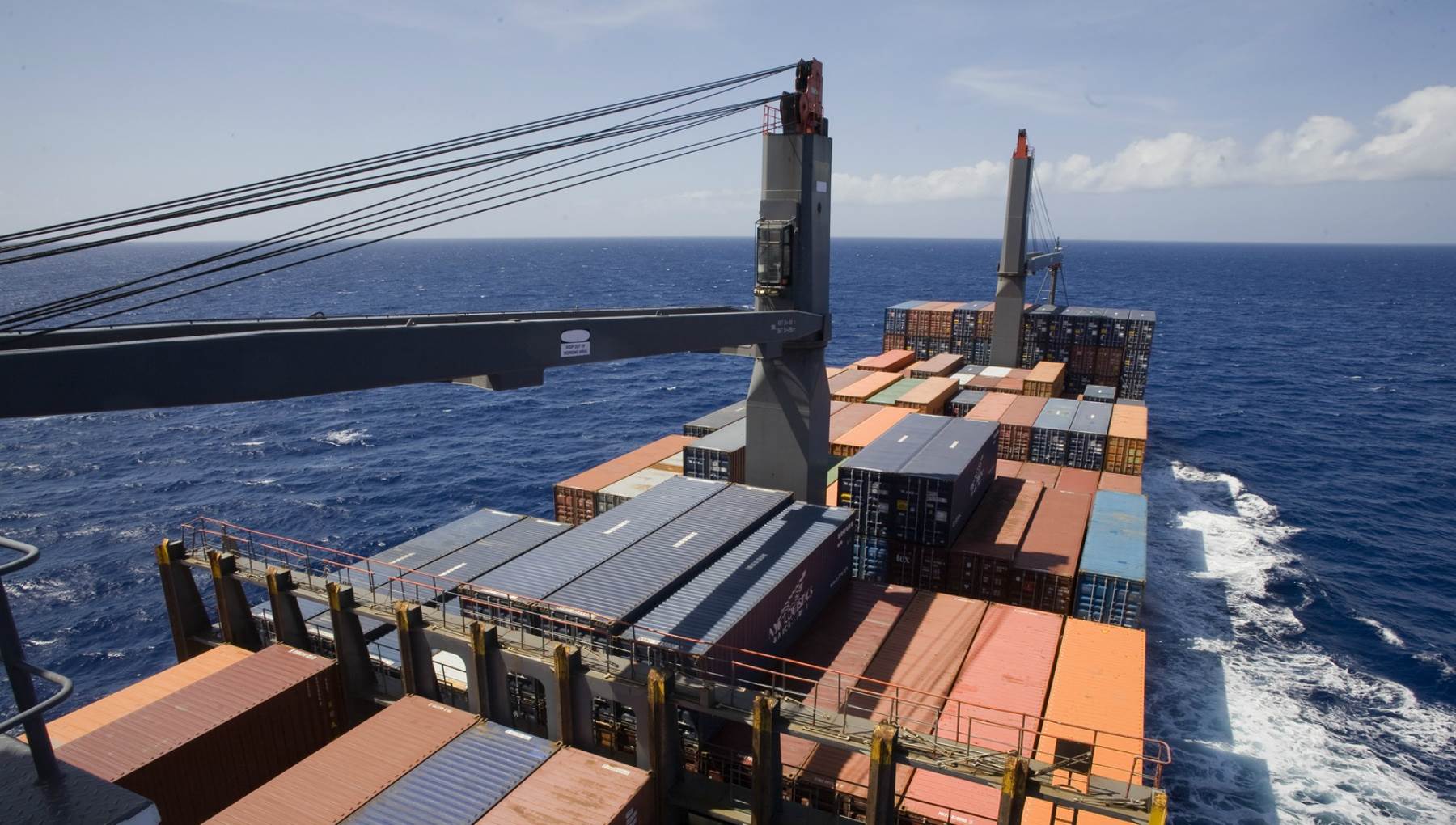Flexport founder and CEO Ryan Petersen / Photo: victoriasmithphoto.com
Dubbed a freight forwarder for the internet age, Flexport is among a group of start-ups looking to disrupt the field of logistics, digitizing the processes that their more established competitors currently handle by relying on telephones, spreadsheets and fax machines. And launched just four years ago, the San Francisco-based company, that now employs over 400 staff across seven international offices, has recently been valued by investors at more than $1 billion.
Shunning the industry’s traditional and costly paper-led approach in favor of the speed and efficiency of software, Flexport’s web-based app allows clients to organize transportation, clear customs and arrange associated services online, as well as offering real-time visibility of their shipments. Data analysis enables the company to optimize shipping routes and simplify relationships with all parties along the supply chain, from ports to truck drivers, and by reducing container travel time this also allows clients to keep less inventory to hand, without incurring the risk of running out.
Flexport's Dutch-based European headquarters
Just a year after raising $65 million at a valuation of $365 million, Flexport is thought to have recently closed a new round of funding. According to TechCrunch, multiple sources have confirmed that the start-up, which has received support from Carmen via venture capital investor Susa Ventures and independently, has completed a $110 million Series C at an $800 million pre-money valuation, viewed by the company as more manageable than the $1 billion originally touted. “We’ve always sought the best investors, and the investors who can help the company the most don’t always offer the highest valuation,” explained Flexport founder and CEO Ryan Petersen to Forbes.com.
Susa Ventures' co-founders Leo Polovets, Chad Byers and Seth Berman.
Founded in 2013, Susa Ventures manages two early-stage technology funds. The company’s focus is investing in teams with technical founders, and companies that use data, network effects or economies of scale to build value and achieve longevity. Since its launch, Susa has funded 41 companies, including Flexport, and in keeping with its rather unique family-style approach to business, has helped numerous founders connect with and learn from one another.
"Susa has been hands-down one of Flexport's most engaged, connected, and helpful investors,” said Flexport’s Ryan Petersen. “Over half of our anchor clients came through Susa introductions, and those in turn led to the other half coming on board. Flexport would be half as good a company without the clients that came through Susa introductions."
Ryan Petersen, who has an MBA from Columbia and a B.A. in Economics from UC Berkeley, is also the founder and ex-CEO of ImportGenius.com, the largest provider of business intelligence to the import-export industry. It was importing dirt bikes and scooters from China with his brother, which involved having to deal with freight forwarders, that led the entrepreneur to realize how antiquated the industry was, and subsequently resulted in the launch of Flexport in 2013.
The new capital raised will undoubtedly help Flexport continue to transition from a pure-play software company handling logistics to a bona fide freight company. The start-up opened its first warehouses at Los Angeles International Airport and Hong Kong International Airport last month, with more scheduled to follow, a move that will allow Flexport to offer a wider range of services and gain market share - Petersen told Forbes he expects revenues of $500 million this year, which compares to those in excess of $1 billion currently enjoyed by 25 of the company’s freight forwarding competitors.
“It’s a logical step for [Flexport] as well as for any other start-ups looking to disrupt this market,’” Cathy Roberson, a shipping industry analyst, explained to wsj.com. “Right now a lot of those start-ups are nothing more but marketplaces where all you can do is compare rates, book freight, manage documents and so on. It’s time for them to start differentiating themselves."





